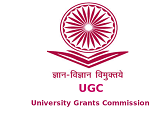
Indexed in UGC CARE LIST: Group I
Peer Review Policy
EDITORIAL PROCESS
A manuscript will be reviewed for possible publication with the understanding that it is being submitted to the Journal of Clinical Prosthodontics and Implantology, alone at that point in time and has not been published anywhere, simultaneously submitted, or already accepted for publication elsewhere. The journal expects that authors would authorize one of them to correspond with the journal for all matters related to the manuscript. All manuscripts received are duly acknowledged. On submission, editors review all submitted manuscripts initially for suitability for formal review. Manuscripts with insufficient originality, serious scientific or technical flaws, or lack of a significant message are rejected before proceeding for formal peer-review. All the manuscripts will be subjected to plagiarism check before being accepted for review and will be rejected if not within the acceptable guidelines. Manuscripts that are of less interest to the Journal of Clinical Prosthodontics and Implantology, are also liable to be rejected at this stage itself.
Review/editing of manuscripts: Manuscripts that are found suitable for publication in the Journal of Clinical Prosthodontics and Implantology, are sent to expert reviewers. Every manuscript is also assigned to a member of the editorial team, who based on the comments from the reviewers takes a final decision on the manuscript. The comments and suggestions (acceptance/ rejection/ amendments in manuscript) received from reviewers are conveyed to the corresponding author. Manuscripts accepted for publication are copy edited for grammar, punctuation, print style, and format. Papers that draw conclusions from statistical evidence may be reviewed by a statistical consultant.
Timeline: Average time for first decision would be 2 weeks. Acceptance of article to publication would be maximum of 6 months. However, the accepted article would be immediately displayed under ahead of print.
PEER REVIEW PROCESS
We follow double blind peer review, wherein both the refrees and the authors remain anonymous throughout the process.
Anti-plagiarism Policy
Plagiarism includes the duplicate publication of the author’s own work, in whole or in part without proper citation or mispresenting other’s ideas, words, and other creative expressions as one’s own. The Journal follows strict anti-plagiarism policy. All manuscripts submitted to the Journal will undergo plagiarism check with commercially available software. Based on the extent of plagiarism, authors may be asked to address any minor duplication or similarity with the previously published work. If plagiarism is detected after publication, the Journal will investigate. If plagiarism is established, the journal will notify the authors’ institution and funding bodies and will retract the plagiarised article.
Retraction policy
- Clear evidence that the findings are unreliable.
- Plagiarised manuscript
- Previously been published elsewhere without proper attribution to previous sources
- It contains material or data without authorisation for use
- Copyright has been infringed or there is some other serious legal issue
- It reports unethical research
- The author(s) failed to disclose a major competing interest
Process of appeals
The authors can appeal to the editor’s decision if they have a piece of strong reason evidence or information in response to the editor’s and reviewer’s comments. If the authors wish to appeal the decision, they should email the editorial office explaining in detail the reason for the appeal. The appeals will be acknowledged by the editorial office and will be investigated in an unbiased manner. The processing of appeals will be done within 6 – 8 weeks. While under appeal, the said manuscript should not be submitted to other journals. The final decision rests with the Editor in Chief of the journal. Second appeals are not considered.
Day 0: Manuscript submission
Day 1–5: Initial editorial screening
Day 6–7: Assignment to handling editor
Day 8–14: Selection of peer reviewers
Day 15–20: Reviewers confirm availability
Day 21–45: Peer review process
Day 46–50: Reviewer comments sent to authors
Day 51–60: Authors submit revised manuscript
Day 61–80: Second round of peer review
Day 81–90: Final decision made
